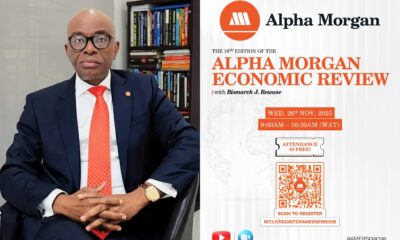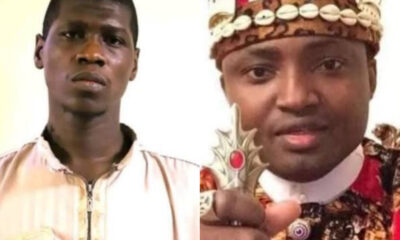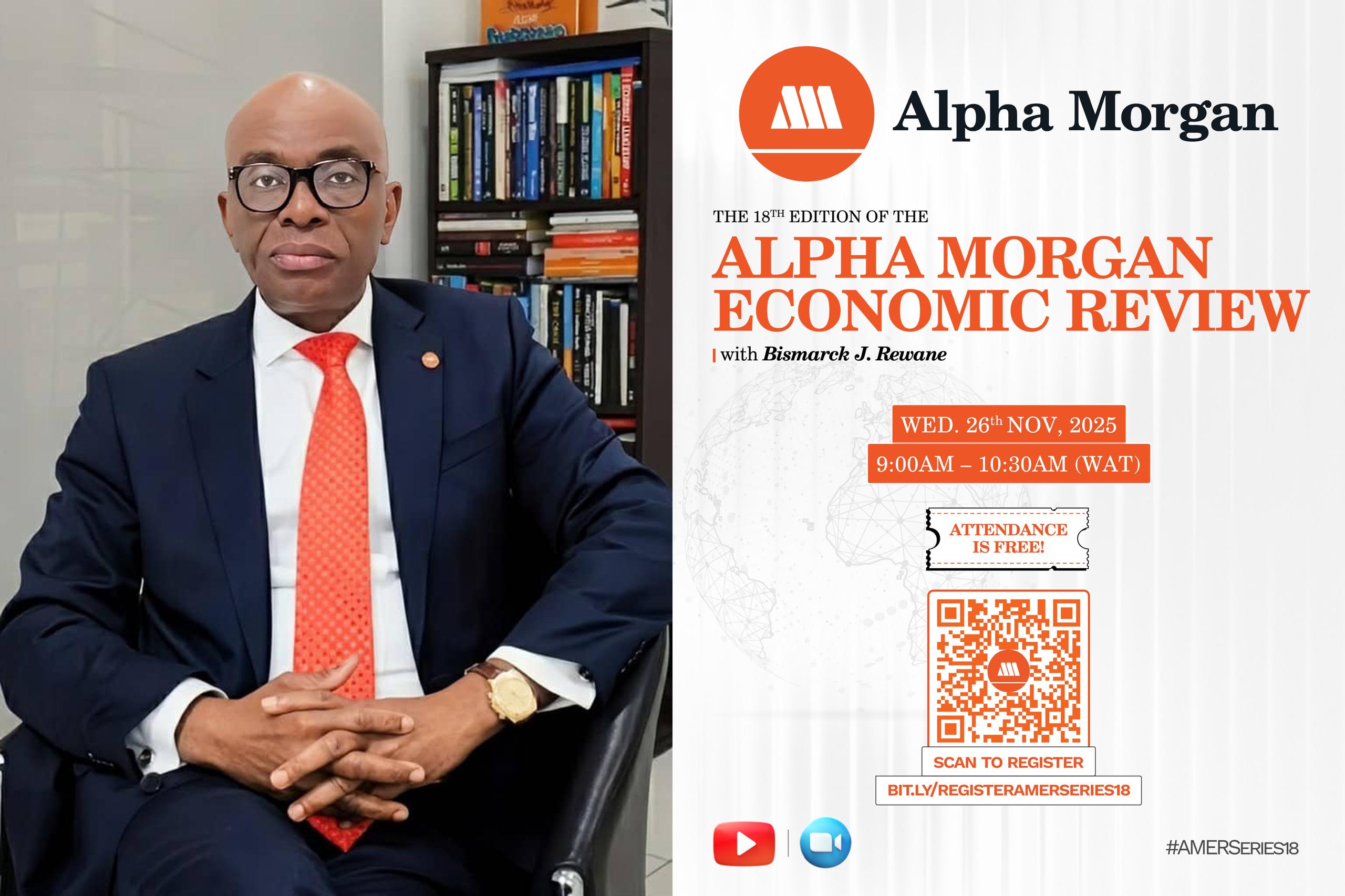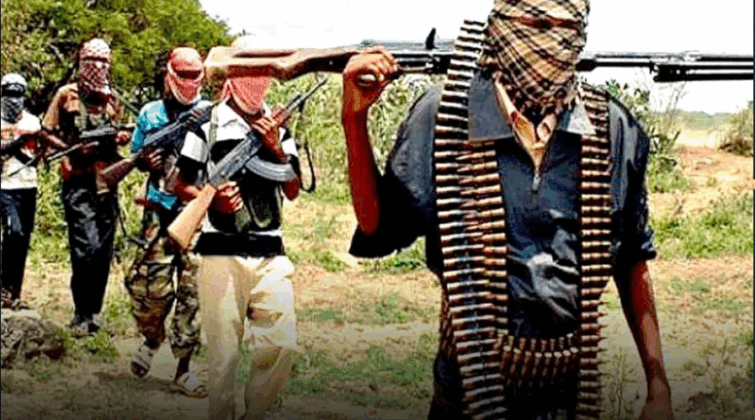In a proceeding that stretched for more than seven hours, Justice James Omotosho of the Federal High Court in Abuja on Thursday sentenced the leader of the Indigenous People of Biafra, Nnamdi Kanu, to life imprisonment after finding him guilty on all seven counts of terrorism brought by the Federal Government.
Reacting swiftly to the judgment, prominent leaders from the South-East announced plans to pursue a political resolution for Kanu’s release and appealed for calm across the region.
Speaking on behalf of Igbo leaders, the Deputy Speaker of the House of Representatives, Ben Kalu, stated, “All hope is not lost: Political solution is underway to secure Kanu’s release.”
In a statement issued by his Chief Press Secretary, Levinus Nwabughiogu, Kalu expressed optimism that a political intervention could secure Kanu’s freedom.
He voiced confidence that President Bola Tinubu would consider the appeals from respected Igbo leaders and emphasised the need for calm among citizens of the South-East and the wider Nigerian public.
Kalu added that efforts for a political intervention had previously been delayed due to the ongoing trial, noting that the conclusion of the court process now cleared the path for such engagement. He said the leadership of the zone was prepared to intensify its push for presidential action, expressing certainty that their request would be accommodated.
The court session opened under tense conditions after Kanu interrupted the judge during proceedings, prompting Justice Omotosho to order security operatives to remove him from the courtroom.
The judge ruled that the trial would continue without the IPOB leader, describing his conduct as disruptive and unacceptable within judicial proceedings.
Kanu had protested during the delivery of the judgment, insisting that the court could not proceed because he had not submitted his final written address.
He raised his voice, demanding, “ ‘Which law states that you can charge me on an unwritten law? Show me. Omotosho, where is the law? Any judgment declared in this court is complete rubbish.’ ”
He accused the court of bias and questioned the judge’s competence in legal matters.
Following a brief recess, prosecuting counsel Adegboyega Awomolo urged the court to continue proceedings in Kanu’s absence, citing his disorderly behaviour.
Justice Omotosho ruled that although a defendant is constitutionally entitled to be present during trial, consistent unruliness can warrant the continuation of proceedings without them.
He stated, “If a defendant misconducts himself or acts in an unruly manner during the course of his trial, his trial can be conducted in his absence.”
He further said that the court remains a temple of justice and must maintain order.
The judge noted that Kanu had displayed similar behaviour in earlier sittings, describing the conduct as consistent.
He added that Kanu had already indicated he would not present a defence and that the day had been scheduled specifically for judgment and sentencing.
With Kanu removed, Justice Omotosho proceeded with the ruling.
The court ultimately sentenced Kanu to life imprisonment for counts one, two, four, five, and six. The proceeding, which began at 9am, concluded at about 4:30pm.
The charges involved allegations of secessionist activities across the South-East, South-South and parts of the Middle Belt, terrorism, affiliation with a proscribed group, the killing of security operatives, destruction of public infrastructure, concealment of activities, and smuggling an unregistered radioactive transmitter.
For count three — relating to membership of a proscribed terrorist group — the court imposed a 20-year sentence without an option of fine.
On count seven, involving the unlawful importation of a radio transmitter for Radio Biafra broadcasts, the court handed down a five-year sentence without an option of fine.
Justice Omotosho held that statements such as “people will die and the nation will stand still” constituted acts of terrorism punishable by death under the law.
He added, “A person who is found guilty of the offence will get a maximum of a death sentence. The death penalty is increasingly frowned upon by the international community. Consequently, and in the interest of justice, I hereby sentence the convict, Mazi Nnamdi Kanu, to life imprisonment on counts 1, 2, 4, 5, and 6 instead of the death penalty.”
He declared that for count three, Kanu would serve 20 years with no fine option, while count seven carried a five-year sentence with no fine option. He directed that all sentences run concurrently.
According to the court, Kanu’s broadcasts — including orders enforcing sit-at-home directives — constituted terrorism, with serious impact on public safety.
The court quoted Kanu’s broadcast warning, “The defendant enforced the order of Sit-at-home in the South-East, saying there will be a complete shutdown of Biafraland; Saying I know some of you are foolish, trying to open your shop around 12 noon. If you do that, we will burn you in that shop.”
Justice Omotosho said these directives were unconstitutional and harmful to the region’s socioeconomic life.
He also held that Kanu’s statements referring to Nigeria as a “Zoo”, threatening the nation’s existence, and urging secession validated the terrorism charges.
The judge stated that Kanu’s broadcasts contributed to the killing of APC chieftain Ahmed Gulak, the closure of businesses, prevention of farming, and disruption of church attendance in the South-East.
He cited Kanu’s comments abroad, including statements at the Igbo World Congress in the United States, where he reportedly claimed there would be bloodshed and that America would provide “guns and bullets.”
The court also referenced Kanu’s remarks during an interview with Sahara Television, where he declared that Nigeria would become uninhabitable during the agitation, describing it as a “zoo.”
Omotosho said that although Kanu’s conduct warranted the death sentence, he opted for leniency due to Christian principles of mercy and teachings in the book of Matthew.
He said, “I read the entire file from the time the matter first started in 2015… However, this court will not consider that, as God himself is merciful.”
He added that although he was not convinced by the plea made by a House of Representatives member, he would apply mercy, emphasising that the court drew inspiration from Biblical doctrine.
Justice Omotosho then ruled that Kanu should be held in a secure facility outside Kuje Custodial Centre, citing past prison breaks and potential risk of attacks from those who suffered losses due to his directives.
He ordered that Kanu must not have access to any digital device and directed that the seized transmitter be forfeited to the Federal Government.
Upon delivering the sentence, the judge called on members of Kanu’s legal consultants — Aloy Ejimakor, Prince Mandela, P. Ejiofor and Maxwell Okpara — to take note of the judgment and inform him.
He clarified that they had previously served as his lawyers before being redesignated as consultants.
Ejimakor informed the court they did not have Kanu’s brief, prompting a query from the judge on why they were present. Ejimakor replied that they were attending “as consultants.”
The judge maintained that their presence would be entered into the record and stated that Kanu had not been denied fair hearing, noting that a defendant cannot dictate the conduct of their trial.
He recalled the timeline of the case since 2015, including Kanu’s four-year bail jump and several adjournments sought by the defendant even after the court granted accelerated hearing.
He noted that after the prosecution closed its case in June 2025, the Nigerian Medical Association declared Kanu fit for trial, but the defendant responded by filing a no-case submission, which the court dismissed on September 26.
Omotosho said the court approved Kanu’s request to summon 28 witnesses, including foreigners, but the defendant abandoned the move.
He added that Kanu failed to present any witness to support claims such as “extraordinary rendition from Kenya”, denial of fair hearing, and other allegations in his pre-trial filings.
He described Kanu’s allegations as unproven assertions and maintained that the prosecution’s evidence overwhelmingly established the charges.
Outside the courtroom, consultant lawyer Aloy Ejimakor said the defence would proceed to the Court of Appeal, describing the judgment as a “travesty of justice.”
He said, “From here, we are heading to the Court of Appeal… Nnamdi Kanu is not going to stand convicted; it is going to get overturned.”
The judgment triggered strong reactions from Igbo leaders and groups, many of whom rejected the life sentence.
The former Vice President of Ohanaeze Ndigbo, Chief Damian Okeke-Ogene, described the ruling as a dark moment for the Igbo people, alleging that the judge acted on a predetermined script.
He questioned the basis of the trial, pointing out that the Supreme Court had earlier discharged Kanu.
He called on the Federal Government to intervene, arguing that dialogue had been extended to armed groups such as Boko Haram, and insisting that Kanu deserved release.
The Public Relations Officer of Ohanaeze Ndigbo, Dr. Ezechi Chukwu, said the body had not yet received the full judgment, promising a detailed position after review.
The Coalition of South-East Youth Leaders said the verdict had heightened anxiety in the region. Its President General, Goodluck Ibem, appealed to the President to adopt a political solution and exercise his constitutional powers to release Kanu.
Ibem said Kanu’s case had gone beyond legal boundaries and now reflected wider concerns about national unity and representation.
The South East Revival Group condemned the ruling, describing it as a constitutional violation and a blow to fair hearing. In a statement signed by its National Director of Publicity, Nnaemeka Aleke, the group accused the judge of relying on a repealed law, the Terrorism Prevention Act of 2013, instead of the updated 2022 legislation.
SERG urged the National Judicial Council to review the judge’s conduct and called on the Court of Appeal to overturn the decision.
The Igbo Community Association in Abuja also rejected the verdict, warning that the sentence posed a threat to peace in the South-East. Its President-General, Ikenna Ellis-Ezenekwe, argued that Kanu was not given enough room to defend himself and criticised the court for ignoring killings of IPOB youths.
He said the judgment could undermine the fragile stability recently restored in the region and argued that Kanu should receive similar treatment to other armed groups who benefited from negotiations.
A senior lawyer in Imo State, Ngozi Olehi (SAN), described the case as political, arguing that despite the conviction, the Federal Government retained the authority to order Kanu’s release.
Olehi stated that the trial reflected deeper issues of governance, security and political instability, asserting that the matter should be resolved politically despite the court’s decision.
“What would Nnamdi Kanu’s conviction reduce from or add to where Nigeria has found itself now. I don’t like commenting on legal issues when I have not fully studied the judgment along with facts or charges upon which such is based, but suffice it to say that the political dimensions upon which Kanu’s agitations are predicated will hardly be diminished by ignoring those aspects.
‘’This is why I still feel that a political solution is imperative, in which case, notwithstanding the conviction, the Federal Government can still release him.”
Prof Francis Dike (SAN) declared, “It is very shocking that Nnamdi Kanu is convicted. It is very shocking, and we are watching.”
Meanwhile, business activities continued unhindered in Owerri, Imo State, on Thursday.
However, some schools sent their wards back home, but markets and banks operated fully.
The road leading to the Governor’s Office, aka Douglas House, was cordoned off, and motorists were forced to use a single lane.
Kanu’s home state, Abia, was peaceful. Aba, Umuahia and Ohafia zones were calm, and the situation was the same in his country home, Afara Ukwu.


 BIG STORY3 days ago
BIG STORY3 days ago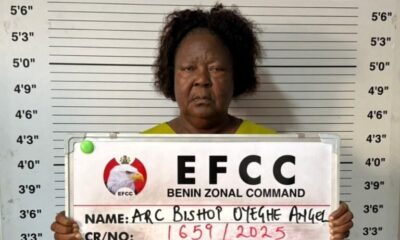
 BIG STORY24 hours ago
BIG STORY24 hours ago
 BIG STORY4 days ago
BIG STORY4 days ago
 BIG STORY4 days ago
BIG STORY4 days ago
 BIG STORY4 days ago
BIG STORY4 days ago
 BIG STORY3 days ago
BIG STORY3 days ago
 BIG STORY20 hours ago
BIG STORY20 hours ago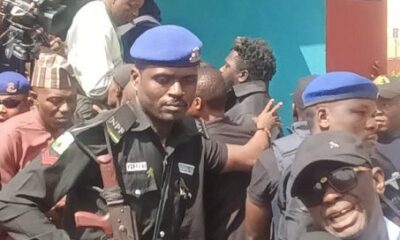
 BIG STORY3 days ago
BIG STORY3 days ago






